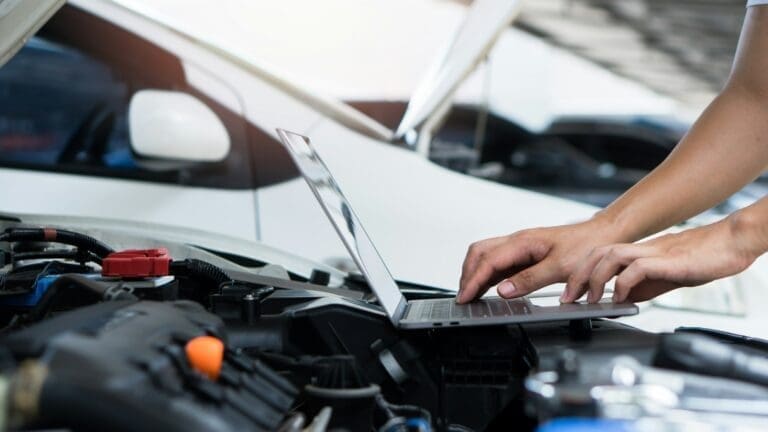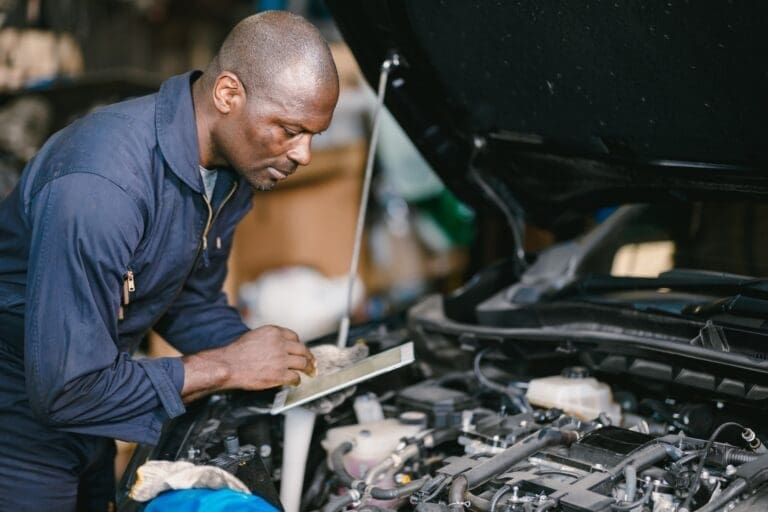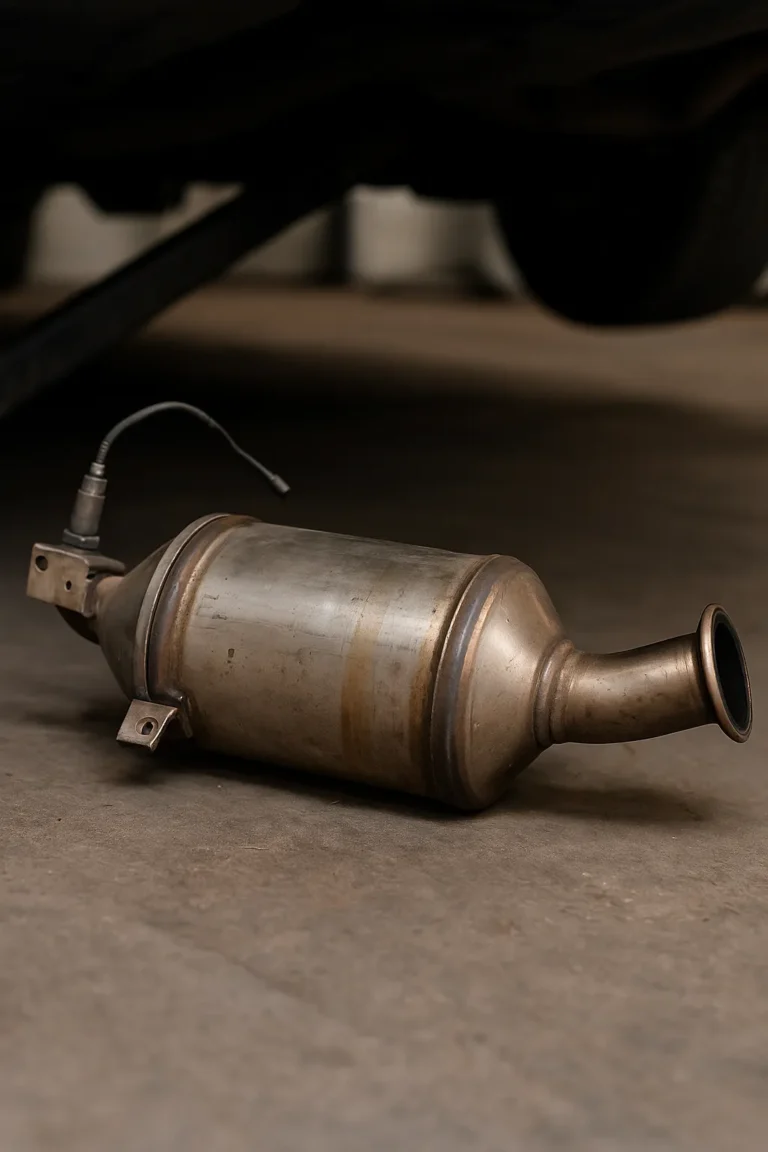Introduction
Table of Contents
ToggleDiesel Particulate Filters (DPFs) are essential components in modern diesel engines, designed to capture and store harmful exhaust particulates before they are released into the atmosphere. Over time, these filters can become clogged with soot and other deposits, affecting your vehicle’s performance and even leading to costly repairs. DPF cleaning is a crucial service that helps restore the filter’s functionality, improves fuel efficiency, and extends the life of your engine. In this guide, we’ll explore why DPF cleaning is necessary, the methods available, and how it can benefit your diesel vehicle.
What is a DPF and Why Does It Get Clogged?
A DPF is a filtration system installed in the exhaust system of diesel vehicles. Its main role is to trap and reduce particulate matter (PM) produced by the combustion process, especially under high-load conditions. Over time, however, this filter collects soot, ash, and other contaminants, which can block the filter and reduce its efficiency. When the DPF gets too clogged, it may trigger a warning light on your dashboard, indicating that a cleaning is necessary.
Signs That Your DPF Needs Cleaning
If your DPF is becoming blocked, there are a few signs you may notice:
- Dashboard Warning Light: The most common indication is a DPF warning light on your dashboard.
- Loss of Power: A clogged DPF restricts the exhaust flow, leading to decreased performance.
- Reduced Fuel Efficiency: The engine may need to work harder, using more fuel.
- Increased Emissions: A clogged DPF can lead to higher emissions, which could fail a vehicle inspection or emissions test.
Ignoring these signs can lead to costly repairs or even replacement of the DPF, which can be expensive. That’s why regular DPF cleaning is essential for any diesel vehicle owner.
Benefits of DPF Cleaning
DPF cleaning offers several advantages for your vehicle and the environment:
- Improved Performance: A clean DPF allows exhaust gases to flow more freely, improving the engine’s efficiency and performance.
- Better Fuel Economy: With less restriction in the exhaust system, your engine won’t need to work as hard, helping to save on fuel.
- Extended Engine Life: Regular cleaning reduces the risk of engine damage caused by a clogged DPF.
- Reduced Emissions: A clean DPF reduces particulate emissions, helping to keep your vehicle compliant with environmental regulations.
Types of DPF Cleaning
There are several methods for cleaning a DPF, each suited to different levels of blockage and vehicle types:
- Passive Regeneration
- Passive regeneration happens automatically when the exhaust temperature is high enough to burn off the accumulated soot in the DPF. This usually occurs during long highway drives.
- Pro Tip: Regular long drives can help prevent the DPF from getting too clogged.
- Active Regeneration
- In this method, the vehicle’s engine control unit (ECU) injects extra fuel to increase the exhaust temperature and burn off soot.
- Caution: Active regeneration may cause the engine to idle rough or create a burning smell temporarily.
- Forced Regeneration
- Forced regeneration is a manual process performed by a mechanic using specialized equipment to clean the DPF.
- Ideal For: Highly clogged DPFs where passive and active regeneration haven’t worked.
- Off-Vehicle DPF Cleaning
- In severe cases, the DPF is removed from the vehicle and cleaned using machines that can restore it to like-new condition.
- Process: This involves ultrasonic cleaning or thermal cleaning to break down soot and ash deposits.
How Often Should You Clean Your DPF?
The frequency of DPF cleaning depends on your driving style and vehicle usage. Short trips and city driving can cause the DPF to clog more quickly, as the exhaust doesn’t reach the temperatures required for passive regeneration. Generally, it’s recommended to check the DPF condition every 12,000 to 18,000 miles, especially if you do a lot of urban driving.
DIY vs. Professional DPF Cleaning
Some drivers attempt to clean the DPF themselves using fuel additives or DPF cleaning sprays. While these can provide a temporary fix, they’re often not as effective as professional cleaning. Professional DPF cleaning uses advanced equipment that can thoroughly clean the filter without risking damage.
DIY Tips for Minor Cleaning:
- DPF Cleaner Additives: Additives can help to loosen soot deposits during regular driving.
- Long Drives: If safe and practical, a 30-minute drive at highway speeds can aid in passive regeneration.
Professional DPF Cleaning is recommended for deep cleaning and stubborn clogs. A skilled mechanic can assess the condition of your DPF and recommend the best cleaning method to ensure optimal performance and longevity.
Is DPF Cleaning Legal?
DPF cleaning is entirely legal and encouraged to maintain vehicle performance and compliance with emissions regulations. However, removing or deleting the DPF is illegal in many regions, as it increases harmful emissions. If you’re considering DPF cleaning, always choose a reputable service provider who follows legal and environmentally friendly practices.
When to Seek Professional Help
If your DPF light remains on, you experience frequent power loss, or your fuel efficiency is suffering, it’s time to consult a professional. A mechanic can run diagnostics to determine the level of clogging and recommend the most effective cleaning method. Regular servicing and cleaning will keep your DPF in good condition, prolong your engine’s life, and help you avoid costly repairs down the road.
Conclusion
DPF cleaning is an essential maintenance task for diesel vehicle owners. It helps maintain performance, improves fuel economy, and reduces harmful emissions. While some minor cleaning can be managed with additives or regular long drives, professional DPF cleaning is recommended for more significant clogs. By investing in regular DPF maintenance, you’ll not only save money on repairs but also do your part for a cleaner environment.



